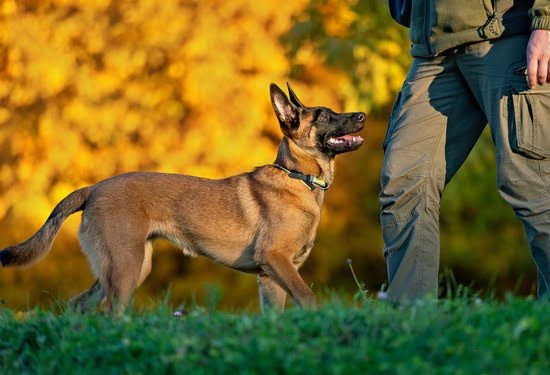Is your furry friend not responding to treats during training? If you are wondering how to train a dog that is not food motivated, you are not alone. Many pet owners face the challenge of working with a dog that doesn’t seem interested in food rewards.
But fear not, there are alternative methods and motivators that can be used to effectively train your pup. In this article, we will explore various techniques and strategies for training a dog that is not motivated by food.
One of the first steps in addressing this issue is understanding the reasons behind a dog’s lack of food motivation. There could be several factors at play, such as genetics, health issues, or simply individual preferences. By gaining insight into the underlying causes, you can tailor your training approach to better suit your dog’s needs.
In addition to traditional food rewards, there are other motivators that can be utilized during training. From praise and affection to toys and play, it’s important to identify what resonates with your canine companion. Building a strong bond and trust with your dog is also crucial in overcoming their lack of interest in food rewards.
By implementing positive reinforcement techniques and exercising patience and consistency, you can make significant strides in training a dog that is not food motivated. And when necessary, seeking professional guidance can provide valuable insight tailored to your specific situation. With the right approach and adaptation of methods, you can effectively train your beloved pet regardless of their food motivation.
Identifying Alternative Motivators for Training
Training a dog that is not motivated by food can be challenging, but it is important to understand the reasons behind this lack of motivation. Some dogs may simply have a lower food drive, while others may be picky eaters or have a medical condition affecting their appetite. Regardless of the cause, it’s crucial to find alternative motivators for training in order to effectively communicate with your furry friend.
When it comes to identifying alternative motivators for a dog that is not food motivated, it’s essential to think outside the box. One option is to use praise and affection as a form of positive reinforcement during training sessions. Dogs are social animals and thrive on the approval and attention of their owners, so verbal praise, petting, and even belly rubs can be powerful rewards for good behavior.
Another effective alternative motivator for training a dog that isn’t interested in food is incorporating toys and play into the process. Many dogs are highly toy-motivated, whether it’s a favorite ball for fetch or a squeaky toy for tug-of-war. By using these items as rewards for desired behaviors, you can make the training experience engaging and enjoyable for your pup.
In addition to praise and play, building a strong bond and trust with your dog is crucial when training a non-food motivated pup. Spending quality time together, going on walks, and engaging in interactive activities can help strengthen your relationship with your furry companion and make them more receptive to training efforts. Overall, understanding what motivates your dog and adapting your approach accordingly is key when facing the challenge of training a dog that lacks interest in food rewards.
Using Praise and Affection as a Training Tool
When it comes to training a dog that is not food motivated, it’s important to explore alternative ways of incentivizing and rewarding them for good behavior. One highly effective method is using praise and affection as a training tool. Dogs, like humans, thrive on positive reinforcement and respond well to verbal and physical approval from their owners.
Understanding the Power of Positive Reinforcement
Positive reinforcement involves rewarding your dog for exhibiting desired behaviors, such as following commands or obeying instructions. This can be effectively achieved through verbal praise, enthusiastic petting, and even the use of treats sparingly if your dog responds positively to these actions.
Implementing Consistent Affection and Encouragement
Consistency is key when using praise and affection as a training tool for a dog that lacks food motivation. By consistently offering gentle encouragement, loving pats, and excited verbal affirmations when your dog behaves appropriately, you are reinforcing the value of good behavior in their minds.
Building Trust Through Affectionate Bonds
By incorporating praise and affection into your training methods, you are also building a strong bond and sense of trust with your dog. When they understand that obedience brings about joyous responses from their owner, they are more likely to continue displaying the desired behaviors.
Incorporating Toys and Play Into the Training Process
For some dogs, food may not be the best motivator for training, and in such cases, it may be necessary to incorporate alternative methods to incentivize them. One effective approach is to utilize toys and play as a way to encourage your dog during training sessions.
Choosing the Right Toys
When using toys as a motivator for training, it’s important to select the right kind of toy that your dog finds most appealing. Some dogs may gravitate towards squeaky toys or tug-of-war ropes, while others may prefer balls or frisbees. Understanding what type of toy excites your dog the most will help make training more effective.
Implementing Playtime
Incorporating playtime into your training routine can also help increase motivation for a dog that is not food motivated. Whether it’s playing fetch in the backyard or engaging in a game of tug-of-war, making these activities a part of the training process can make it more enjoyable for your dog and create positive associations with obedience.
Using Toys as Rewards
Just like with food treats, you can use toys as rewards for good behavior during training. For example, if your dog successfully follows a command or performs a trick, you can reward them with their favorite toy as a form of positive reinforcement.
By integrating toys and play into the training process, you can find new ways to motivate and engage your dog, even if they are not initially responsive to food rewards. This approach allows you to tap into your dog’s natural instincts and preferences, ultimately leading to a more successful and enjoyable training experience.
Building a Strong Bond and Trust With Your Dog
Many dogs may not respond to food as a motivator due to various reasons. It could be due to their breed, health issues, or simply a lack of interest in food. Regardless of the cause, it is essential to find alternative ways to motivate and train your dog effectively.
One effective method for training a dog that is not food motivated is by building a strong bond and trust with them. This involves spending quality time with your dog, engaging in activities they enjoy, and providing them with attention and affection. By doing so, you can create a positive association with training and strengthen the bond between you and your pet.
Additionally, incorporating playtime into the training process can also be highly effective. Playing with toys or engaging in activities that your dog enjoys can serve as an excellent motivator for training. For example, utilizing a favorite toy as a reward for completing commands or tasks can encourage your dog to participate actively in training sessions.
Furthermore, using praise and affection as a form of reinforcement can be incredibly beneficial when training a dog that is not food motivated. Dogs thrive on positive reinforcement and respond well to verbal praise, petting, and overall encouragement. By showing your dog love and appreciation during training, you can effectively reinforce good behavior and build their confidence.
| Alternative Motivators | Benefits |
|---|---|
| Quality time with the owner | Strengthens bond and trust |
| Incorporating playtime | Motivates active participation in training |
| Praise and affection | Reinforces good behavior and builds confidence |
Implementing Positive Reinforcement Techniques
Training a dog that is not food motivated can be a challenging task, but it is not impossible. In some cases, the lack of interest in food could stem from various reasons such as health issues, stress, or simply individual preferences. Understanding the reasons behind your dog’s lack of food motivation is crucial in order to identify alternative motivators for training.
One effective way to train a dog that is not food motivated is by implementing positive reinforcement techniques. This involves rewarding desired behaviors with something that your dog finds enjoyable or rewarding. Here are some positive reinforcement techniques that can be used when training a dog that is not interested in food:
- Verbal praise: Dogs respond well to verbal praise and encouragement. When your dog performs the desired behavior, using a cheerful tone and phrases like “good boy” or “good girl” can be very motivating for them.
- Affection: Many dogs are motivated by physical affection such as belly rubs, ear scratches, or even just being close to their owner. Showering your dog with affection when they display the desired behavior can reinforce that behavior.
- Play and toys: Some dogs may be more motivated by playtime and toys rather than food. Incorporating their favorite toys into training sessions or using play as a reward can be highly effective for these dogs.
By understanding what motivates your dog and incorporating positive reinforcement techniques, you can effectively train a dog that is not interested in food. It’s important to be patient and consistent in your training efforts, and always adapt your methods to suit the specific needs of your dog.
Remember that every dog is unique, so finding the right motivator for your furry friend may require some trial and error. If you find yourself struggling to train your dog despite trying various methods, seeking professional help and guidance from a certified dog trainer may also be beneficial in addressing any underlying issues impacting their motivation.
Consistency and Patience in Training a Dog That Is Not Food Motivated
Training a dog that is not food motivated can be challenging, but with patience and consistency, it is possible to achieve successful results. The first step is to understand the reasons behind your dog’s lack of interest in food as a motivator for training. It could be due to various factors such as health issues, stress, anxiety, or simply a lack of interest in the type of treats being offered.
Once you have identified the reasons behind your dog’s lack of food motivation, it is essential to find alternative motivators for training. This could include using praise and affection as a form of positive reinforcement. Dogs thrive on attention from their owners, so verbal cues such as “good boy” or a pat on the head can be just as rewarding for them as a tasty treat.
Incorporating toys and play into the training process can also be effective for dogs that are not food motivated. Some dogs may respond better to playtime with their favorite toy or engaging in interactive games with their owners. This can create a positive association with training and reinforce good behavior without relying on food rewards.
| Training Tool | Effectiveness |
|---|---|
| Praise and Affection | Highly Effective |
| Toys and Play | Effective for certain dogs |
Seeking Professional Help and Guidance When Needed
Training a dog that is not food motivated can be a challenge for many pet owners. It’s important to understand the reasons behind a dog’s lack of interest in food, as this can greatly impact their motivation during training. Some dogs may simply have a lower food drive, while others may have medical issues or be stressed or anxious, which can affect their appetite. Understanding the underlying cause can help in finding alternative motivators for training.
One alternative motivator for training a dog that is not food motivated is praise and affection. Many dogs are highly responsive to positive reinforcement in the form of verbal praise, belly rubs, and ear scratches. By using these rewards consistently during training sessions, you can encourage your dog to perform desired behaviors even without the use of treats.
In addition to praise and affection, incorporating toys and play into the training process can also be effective for dogs that are not food motivated. Playing with your dog and using their favorite toys as rewards can help keep them engaged and motivated during training sessions. This method allows you to tap into your dog’s natural instincts and desires, making the training process more enjoyable for both you and your pet.
As with any type of training, consistency and patience are key when working with a dog that is not food motivated. It’s important to remain patient and persistent, providing plenty of opportunities for your dog to succeed while using positive reinforcement techniques. Every dog is different, so it’s essential to adapt training methods to suit the specific needs of your pet.
If you find yourself struggling to make progress or feel unsure about how to proceed, don’t hesitate to seek professional help and guidance from a certified dog trainer or behaviorist who has experience working with dogs that are not food motivated. With the right approach and support, it is possible to successfully train a dog that lacks interest in food.
Adapting Training Methods to Suit the Specific Needs of Your Dog
In conclusion, training a dog that is not food motivated can be challenging, but with the right approach and techniques, it is possible to achieve success. Understanding the reasons behind your dog’s lack of food motivation is the first step in finding alternative motivators for training. Whether it’s using praise and affection, incorporating toys and play into the training process, or implementing positive reinforcement techniques, there are many ways to encourage your dog to participate in training.
Building a strong bond and trust with your dog is essential in any training process, especially with a dog that is not food motivated. Consistency and patience are also key factors in successfully training a dog that may not respond to traditional food rewards. It’s important to seek professional help and guidance when needed, as a trained professional can provide valuable insight and personalized strategies for your specific situation.
Adapting training methods to suit the specific needs of your dog is crucial. Every dog is unique, and what works for one may not work for another. By being adaptable and open to trying different approaches, you can find the best way to motivate and train your non-food motivated dog effectively. So remember, with dedication and understanding of your pet’s individual needs, you can find success in training a dog that is not food motivated.
Frequently Asked Questions
How Do You Train a Dog if They Are Not Food Motivated?
Training a dog that is not food motivated can be challenging, but it’s not impossible. You can try using toys or other forms of positive reinforcement such as praise and attention to reward desired behaviors instead of relying solely on food.
Is It Normal for Dogs to Not Be Food Motivated?
It is not uncommon for some dogs to not be very interested in food as a training reward. Factors such as breed, age, health issues, or even the dog’s individual personality can all contribute to a lack of food motivation. Every dog is unique in its preferences and motivations.
How Do You Train a Dog That Doesn’t Like Food?
If your dog doesn’t seem to like food as a training reward, you can explore other options such as verbal praise, physical affection, or playtime to reinforce good behavior. It may require some trial and error to discover what truly motivates your dog, but patience and persistence are key in finding alternative rewards for training.

Welcome to the blog! I am a professional dog trainer and have been working with dogs for many years. In this blog, I will be discussing various topics related to dog training, including tips, tricks, and advice. I hope you find this information helpful and informative. Thanks for reading!





